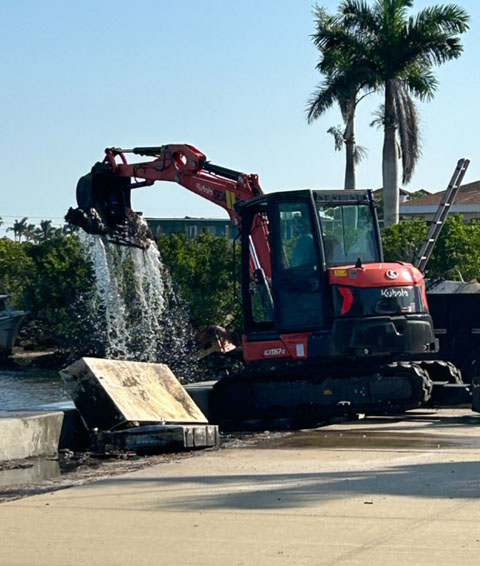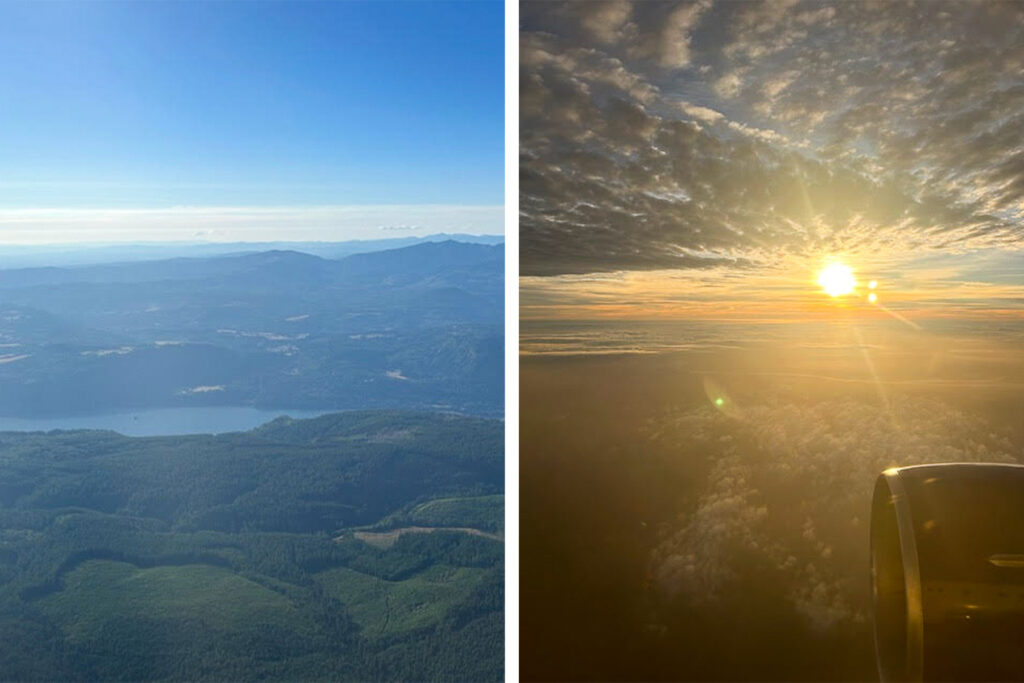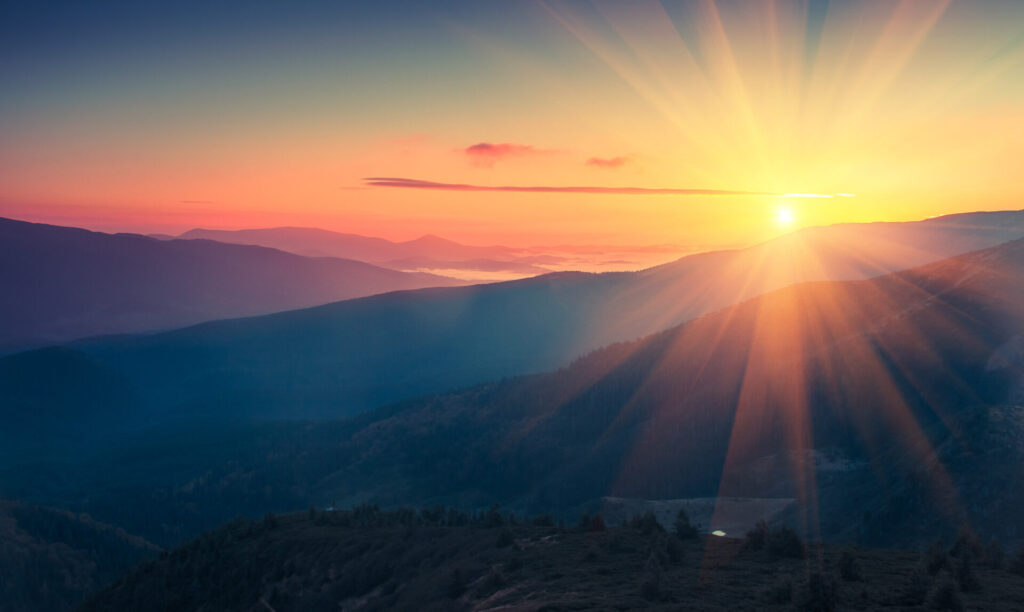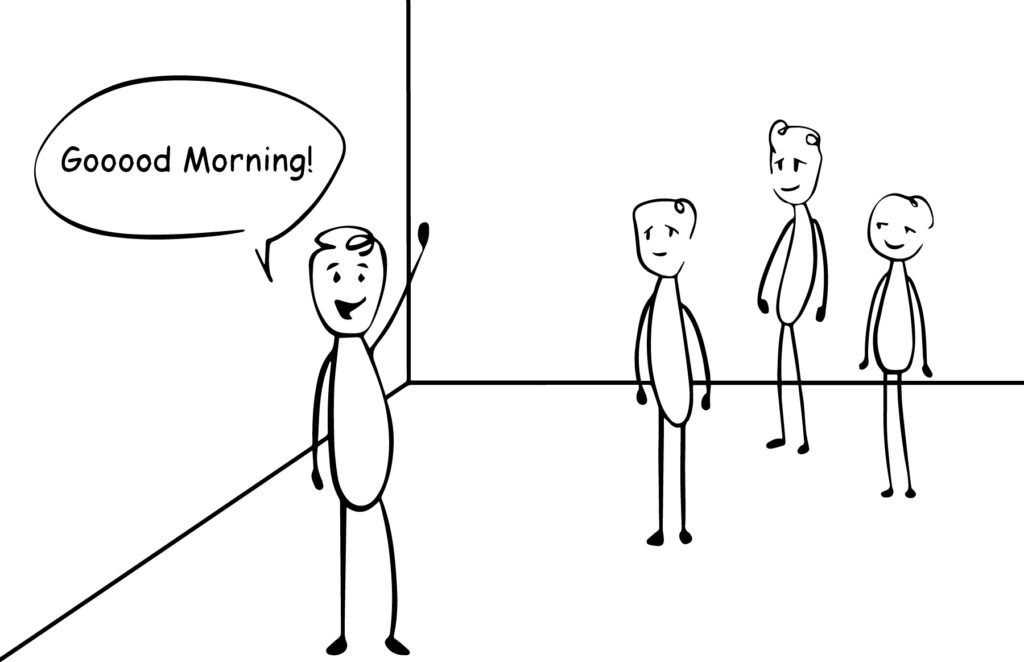If the wreckage is yours, clean it up.
If you have a connection to Florida or you were paying attention to the news last September, you might remember a storm named Ian. It was one of the most powerful and devastating hurricanes to hit Florida in years. The near Category 5 winds created chaos in our winter home of Punta Gorda. When we arrived six weeks after the storm, it was incredible to see how much cleanup had happened already, but also heartbreaking to see the damage that remained.
My morning routine includes a walk along the harbor close to our house. My first morning out, I was shocked at how many wrecked boats were stacked up against the seawalls. Most of them were big, beautiful boats that had clearly been full of life before the storm. It was eerie to walk by them and see all the evidence of recent use, like coffee mugs and bottles of sunscreen, lying about in the wreckage.
Over the following months, the wreckage remained.
Day after day, I would walk by and notice the ongoing deterioration of the abandoned vessels. What were initially intact boats that had run aground slowly broke down, literally coming apart at the seams. By spring, many of them had become battered, moldy skeletons of rubbish in the water. By the time many of them had started to get cleaned up, it took cranes full days as they lifted debris out piece by piece.
I wonder why their owners hadn’t claimed them and cleaned up the mess.
There are lots of possible reasons. Maybe they were arguing with an insurance company over who had to pay for it. The resources and equipment might not have been available. Perhaps it was overwhelming or sad and owners were avoiding it. Or possibly – the owners just didn’t want to deal with it and left the mess for someone else to clean up.
Whatever the reason, our harbor had become a dangerous mess. The shallow harbor, full of things like boat parts, deck furniture and coolers became treacherous to navigate by boat, especially at low tide. The wreckage of things once treasured had become a problem for us all.
This is what happens with wreckage.
The longer one waits to clean things up, the uglier it gets. Things keep falling apart. Other people can get hurt bumping into the mess. Contamination settles in.
Catastrophic storms aren’t the only things that create wreckage. We can all do a pretty good job at creating wreckage ourselves by just living our lives.
Broken agreements.
Unkind words.
Forgetting to say “Thank You”.
Storms are a part of life, literally and metaphorically. In some cases we can prepare for them, and sometimes they surprise us. Sometimes their power is more than we can prepare for and the wreckage is substantial. In other cases, they pass quickly and the damage is slight.
Whatever the case, the longer we wait to clean up the mess the worse it gets.
It’s easy to do. We walk away from relationships, leaving conflict unresolved and unforgiven. Force politeness to the person that broke an agreement, by just “letting it go”. Sometimes we gossip instead of being candid.
Leaving a mess alone usually feels like the easiest or even safest thing to do. Sometimes we don’t know how to do it. Or maybe we don’t have the right tools or resources. It often flat-out feels like too much work. “Not worth the effort”, we think.
I see evidence of this every day in my work with teams. People struggling to trust one another. Meetings where important decisions need to be made but people stay quiet. Grudges and resentments, avoidances and defensiveness. Conversations that are described as “walking on eggshells”. Debris is everywhere.
It’s easy to cast blame or just chalk it up to “not getting along”, but what is actually happening is that people are navigating around the wreckage of a storm that never got cleaned up.
What would things be like if we all cleaned up our messes a little sooner?
Cleaning up after an agreement has been broken or an offense has occurred takes skills, the right tools and commitment. Most of all, it takes ownership. Even if you didn’t create the storm, if the wreckage is yours – clean it up.
It’s not easy. It’s almost never fun. But our world is safer, cleaner and more beautiful when we get it done.
Do you have any wreckage somewhere that hasn’t been cleaned up?
Do you have the skills and tools you need to clean things up the next time a storm comes?
Just some food for thought.




